Ive always been captivated by animals and their fascinating behaviors. From the intricate dances of honeybees to the awe-inspiring migrations of birds, the animal kingdom never ceases to amaze me. One aspect that particularly intrigues me is the power of animal instincts – those innate, hardwired behaviors that enable creatures to navigate their world and survive.
A Hike and a Close Encounter
I remember a time when I was hiking in the Rocky Mountains. The trail was steep and rocky, and I was really concentrating on my footing. Suddenly, I heard a rustling in the underbrush nearby. My heart pounded in my chest as I froze, fear gripping me. A moment later, a large black bear emerged from the bushes just a few yards away.
I did the only thing I could think of – I stood perfectly still and avoided direct eye contact. The bear, seemingly unfazed by my presence, sniffed the air a few times and then ambled off into the woods. It was a heart-stopping encounter, and it made me realize the incredible power of instinct, both in the bear and in myself.
Instinct vs. Learned Behavior
Its important to distinguish between instinct and learned behavior. Instinct is innate, something an animal is born with. For example, baby sea turtles instinctively know to head for the ocean as soon as they hatch. Learned behavior, on the other hand, is acquired through experience and observation. Think of a dog learning to sit on command – thats not instinctual, its learned through training.
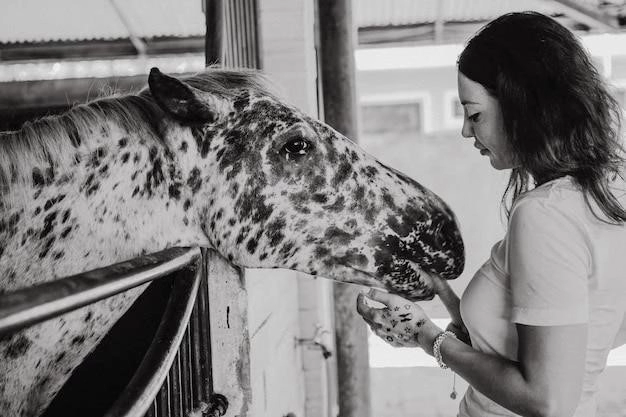
Examples of Fascinating Instincts
The animal kingdom is brimming with examples of incredible instincts⁚
- Bird Migration⁚ How do birds navigate across thousands of miles with such precision? Its still not fully understood, but its believed to involve a combination of magnetic fields, star patterns, and even the Earths olfactory map.
- Spider Webs⁚ Spiders dont need to attend web-making classes. They just know how to do it, spinning intricate and beautiful traps for their prey.
- Salmon Spawning⁚ Salmon are born in freshwater streams, migrate to the ocean to live out most of their lives, and then instinctively return to the very same stream where they were born to spawn and die. Its a remarkable feat of nature.
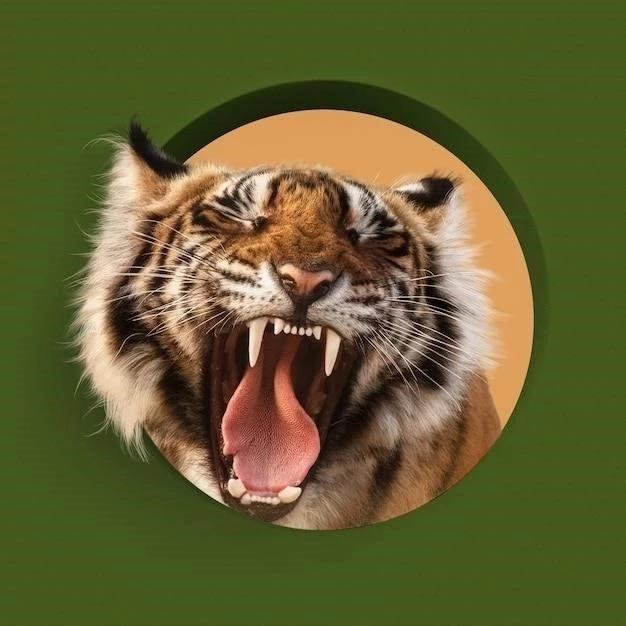
The Importance of Instincts
Animal instincts are crucial for survival. They drive essential behaviors like⁚
- Finding Food⁚ Predators have instincts that help them hunt, while prey animals have instincts that help them avoid becoming dinner.
- Reproduction⁚ Instinctive courtship rituals and mating behaviors ensure the continuation of a species;
- Defense⁚ Animals rely on instincts to protect themselves from danger, whether its a deers flight response or a skunks noxious spray.
Respecting the Wild
My encounter with the bear was a stark reminder that we share this planet with creatures driven by powerful instincts. Its essential to respect wildlife and their space. By learning about animal behavior and taking appropriate precautions, we can coexist peacefully and appreciate the wonders of the natural world.
That encounter in the Rockies stayed with me. It made me want to understand animal instincts better, not just read about them in books. So, I decided to try something. Id always been fascinated by birds, especially their navigational skills. I mean, how do they travel thousands of miles and find their way back to the exact same place year after year? Its mind-boggling!
I started small, with a simple experiment in my own backyard. I set up a bird feeder, one with a unique design Id never used before. Then, I carefully observed the birds that visited. At first, they were hesitant, unsure about this strange new contraption. But their instinct to feed was strong. Within a few days, they were landing on the feeder with confidence, their initial fear overcome by their need to eat.
It wasnt bird migration, but it was a small glimpse into how instinct drives behavior. I realized that even in my own backyard, a miniature ecosystem was playing out, driven by the same powerful forces that guide animals in the wild.
That little backyard experiment sparked a curiosity in me that I couldnt ignore. I started reading everything I could about animal behavior, particularly about bird migration. The more I learned, the more I wanted to witness this incredible phenomenon firsthand.
So, the following spring, I planned a trip to Cape May, New Jersey, a renowned birdwatching spot. Every year, millions of birds pass through Cape May during their spring and fall migrations, making it a birders paradise. I was excited, but also a little intimidated. Would I be able to spot any of these tiny travelers, let alone identify them?
Armed with my binoculars, field guide, and a healthy dose of enthusiasm, I set out to explore the various habitats around Cape May. I wandered through forests, scanned the beaches, and staked out marshes, hoping to catch a glimpse of the avian travelers. And then, it happened.
I was perched on a platform overlooking a salt marsh when I saw it – a flash of brilliant orange against the green reeds. It was a Baltimore Oriole, a bird known for its vibrant plumage and beautiful song. Through my binoculars, I watched as it flitted from branch to branch, seemingly unconcerned by the long journey it had ahead.
That single sighting filled me with a sense of awe. This tiny creature, weighing less than an ounce, had flown thousands of miles, guided by an instinct I could barely comprehend. It was a powerful reminder of the incredible forces that shape life on our planet, forces that were only beginning to understand.
The orioles appearance sparked a new obsession. I was determined to understand how birds navigated these incredible journeys. I devoured books and scientific articles, learning about the complex interplay of magnetic fields, celestial cues, and even olfactory maps that birds use to find their way.
My research led me to an interesting experiment I could try myself. Birds, it turns out, are sensitive to polarized light, an invisible pattern in sunlight that humans cant see. This pattern shifts throughout the day and depending on the suns position. Scientists believe birds use these subtle shifts as a navigational aid.
I decided to see if I could, in a small way, replicate this. I purchased a polarizing filter, the kind used in photography, and took it out on my next birdwatching expedition. Holding it up to my eye, I rotated it slowly, watching as the colors in the sky shifted. It was subtle, but definitely noticeable.
Did the birds see this too? I couldnt ask them, of course. But as I watched a flock of sanderlings darting along the shoreline, their movements perfectly synchronized with the rhythm of the waves, I couldnt help but feel a sense of connection. These birds, so different from me in so many ways, shared my world, navigating it with senses I was only beginning to grasp.
My journey into the world of animal instincts is far from over. Every hike, every birdwatching trip, every encounter with a creature in the wild deepens my fascination and reminds me of the intricate web of life we are all a part of. Its a journey I invite you to join me on. Step outside, open your senses, and prepare to be amazed by the power of instinct all around you.
Inspired by the sanderlings and their connection to the polarized light, I decided to delve deeper into the sensory world of animals. I knew dogs had incredible noses, far surpassing our own limited sense of smell. Could I, I wondered, tap into that world, even just a little?
I decided to try a scent game with my dog, Bailey. Bailey, a goofy golden retriever, lives for two things⁚ belly rubs and chasing squirrels. I figured I could leverage the latter to explore his sense of smell.
In my backyard, which Bailey considers his personal kingdom, I gathered a few of his favorite toys. I rubbed each one thoroughly in different locations—one under the rosemary bush, another near the compost bin, and the last one by the base of the old oak tree. I wanted to give each toy a distinct scent signature.
With Bailey excitedly waiting inside (impatience isnt his strong suit), I hid the toys, making sure they were visually concealed but left in their scent-infused spots. Then, with a “Bailey, find it!” and a toss of the first “scent,” the game was on.
His nose practically glued to the ground, he sniffed his way around the yard, his tail whipping back and forth like a metronome gone haywire. It was fascinating to watch him work. He wasnt relying on sight; he was following the invisible trail of scent, his nose leading the way.
And find them he did! Each toy was unearthed with a triumphant bark and a shower of grass clippings. It was a simple game, but it opened my eyes to the world of scent that exists just beyond our perception. Bailey experiences the world through his nose in a way I can only imagine.
That experience got me thinking about other senses. What about sound? Could I explore the auditory world of, say, bats? That seemed a bit ambitious for a novice naturalist like myself. But what about something closer to home... crickets, perhaps?
Now, Ill admit, Im not the biggest fan of insects. But crickets, with their incessant chirping on warm summer nights, held a certain auditory fascination. I knew their chirping was more than just random noise; it was a form of communication. But what were they saying? Could I decipher their language?
Armed with a flashlight and a healthy dose of bug spray, I ventured out into the night, my ears tuned to the symphony of chirps emanating from the tall grass. I quickly realized this was no easy task. The chirps varied in pitch, rhythm, and volume. Were they sending out mating calls? Warning signals? Or just gossiping about the latest juicy worm theyd encountered?
I tried to record the sounds, hoping to analyze them later. But the crickets, as if sensing my eavesdropping, seemed to change their tune whenever I got close. Frustrated but not defeated, I retreated indoors, my ears still ringing with their cryptic messages.
I may not have cracked the cricket code that night, but the experience left an indelible mark. It was a humbling reminder that the world is full of sensory experiences that lie beyond our limited human perception. And it fueled a desire to keep exploring, to keep asking questions, and to keep marveling at the wonders of the natural world, in all its sensory glory.

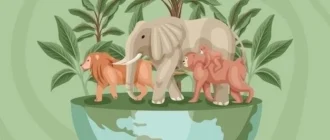

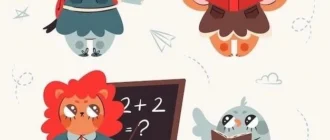
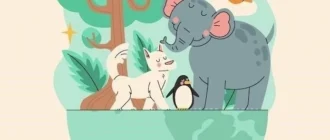

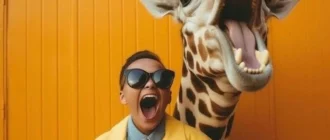
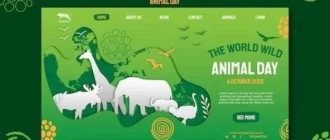

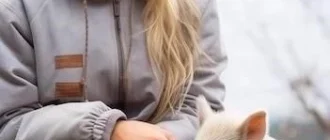

This article really resonated with me! I’ve always been fascinated by animal instincts, especially during my nature walks. It’s incredible how they just know what to do without being taught.
This article has definitely piqued my interest in animal behavior. I’m going to do some more research on the topic and learn more about these fascinating creatures.
I love how you differentiated between instinct and learned behavior. It’s a crucial distinction that helps us understand animal behavior better. The examples you provided were spot-on!
The examples you chose to illustrate animal instincts were perfect! They were relatable, intriguing, and really showcased the diversity of instinctive behaviors in the animal world.
I’m so glad I stumbled upon this article! It’s both informative and engaging, and it’s left me with a newfound appreciation for the power of animal instincts.
Your writing is both informative and entertaining. I enjoyed learning about animal instincts through your personal experience and vivid descriptions.
I’m with you on the spider webs! It’s mind-boggling how they can create such intricate structures without any prior knowledge or training. Their instinctive abilities never cease to amaze me.
I’m fascinated by the idea that animals have an innate understanding of the world around them that we may never fully comprehend. Your article has given me a lot to think about.
This article is a great starting point for anyone interested in learning more about animal behavior. It’s well-written, engaging, and provides a solid foundation for further exploration.
I’m always amazed by the diversity and complexity of the animal kingdom. Your article highlights just how much we still have to learn about these incredible creatures and their instincts.
This article is a great reminder that we share this planet with countless other species, each with its own unique set of instincts and behaviors. We should all strive to appreciate and protect them.
I appreciate how you highlighted the importance of respecting and protecting animals and their habitats. We all have a role to play in ensuring their survival for generations to come.
The encounter with the black bear sent shivers down my spine! It’s amazing how both you and the bear reacted purely on instinct. Your story perfectly illustrates the power of nature.
Your writing is both engaging and thought-provoking. I appreciate how you presented the information in a way that’s both informative and entertaining.
The part about bird migration blew my mind! The fact that they can travel such vast distances using magnetic fields and star patterns is simply astonishing. Nature is truly incredible.
I’m always amazed by the power of nature and the incredible instincts that animals possess. Your article is a testament to the wonders of the natural world.
The part about the Earth’s olfactory map and bird migration was new to me. It’s amazing how much we’re still discovering about the natural world and the creatures that inhabit it.
Your article is a great reminder that we can learn a lot from observing animals and their instinctive behaviors. They have so much to teach us about survival, adaptation, and the interconnectedness of all living things.
The way you described the bear encounter was so vivid! I could almost feel the adrenaline rush and the instinct to freeze in place. It must have been an unforgettable experience.
Your writing style is both accessible and informative. I appreciate how you explained complex concepts in a way that’s easy for anyone to understand, regardless of their background knowledge.
Your passion for animals shines through in your writing! I share your fascination with their incredible instincts. This article has definitely sparked my curiosity to learn even more.
I love how you connected your personal experience with the broader topic of animal instincts. It made the article more relatable and engaging for readers like me.
The comparison between instinct and learned behavior was eye-opening. I never thought about it that way before. Your explanation was clear, concise, and easy to understand.
This article is a great example of how science and storytelling can be combined to create an engaging and informative piece of writing.
I learned so much from this article! I always knew animals had instincts, but I never fully grasped the extent of their capabilities. Your examples were both fascinating and informative.
Your writing style is captivating! I felt like I was right there with you during your encounter with the bear. Thanks for sharing your experience and insights on animal instincts.